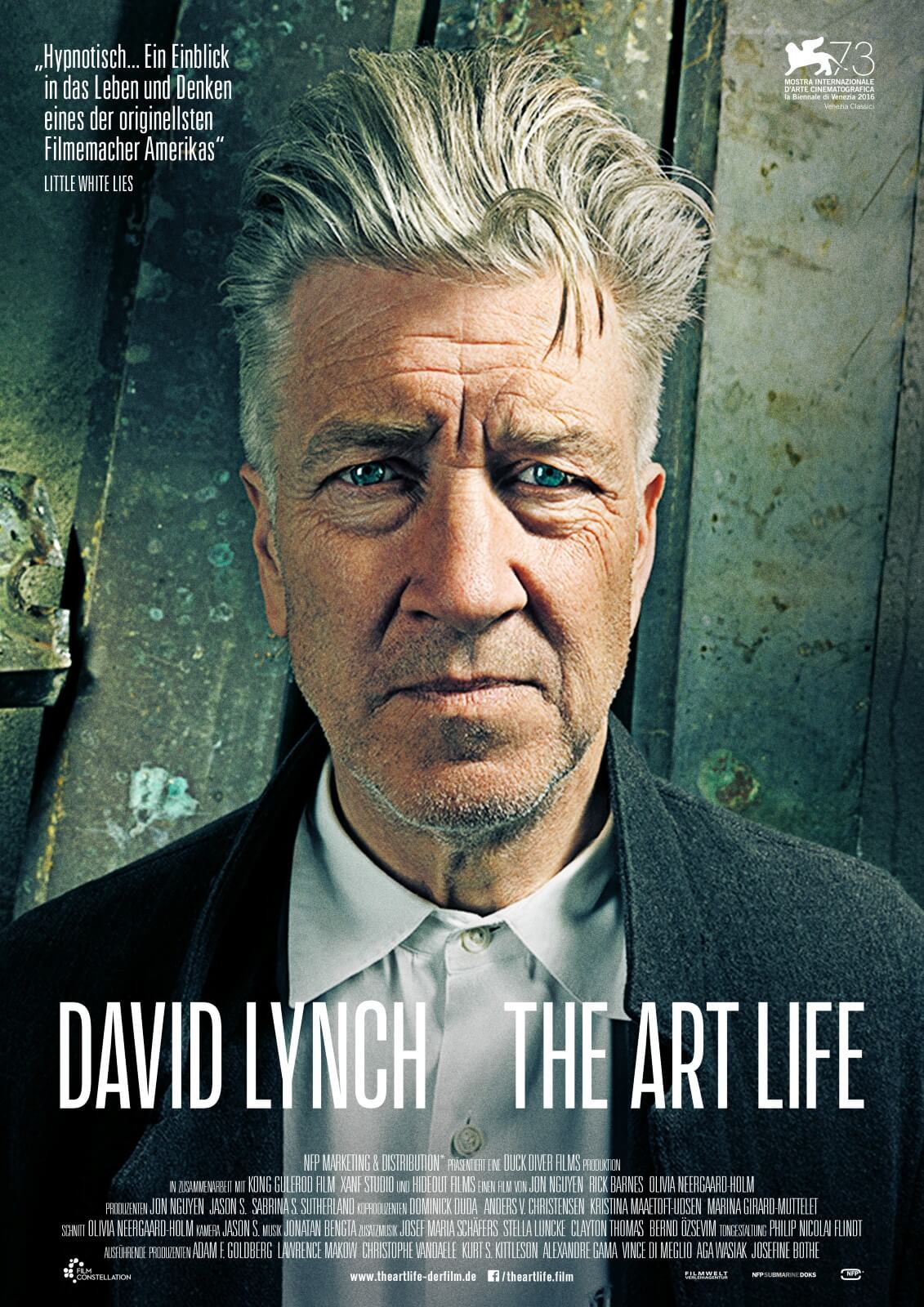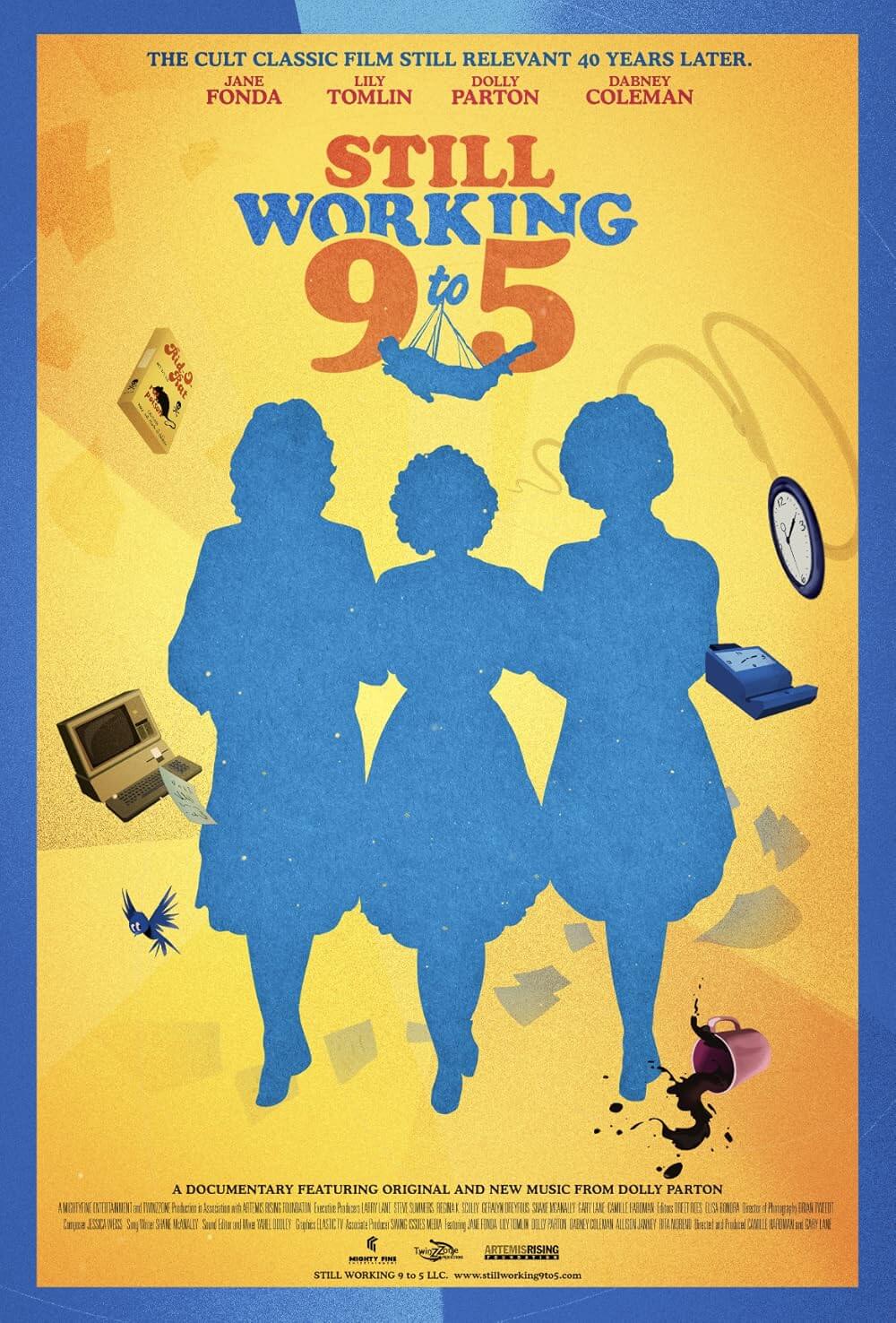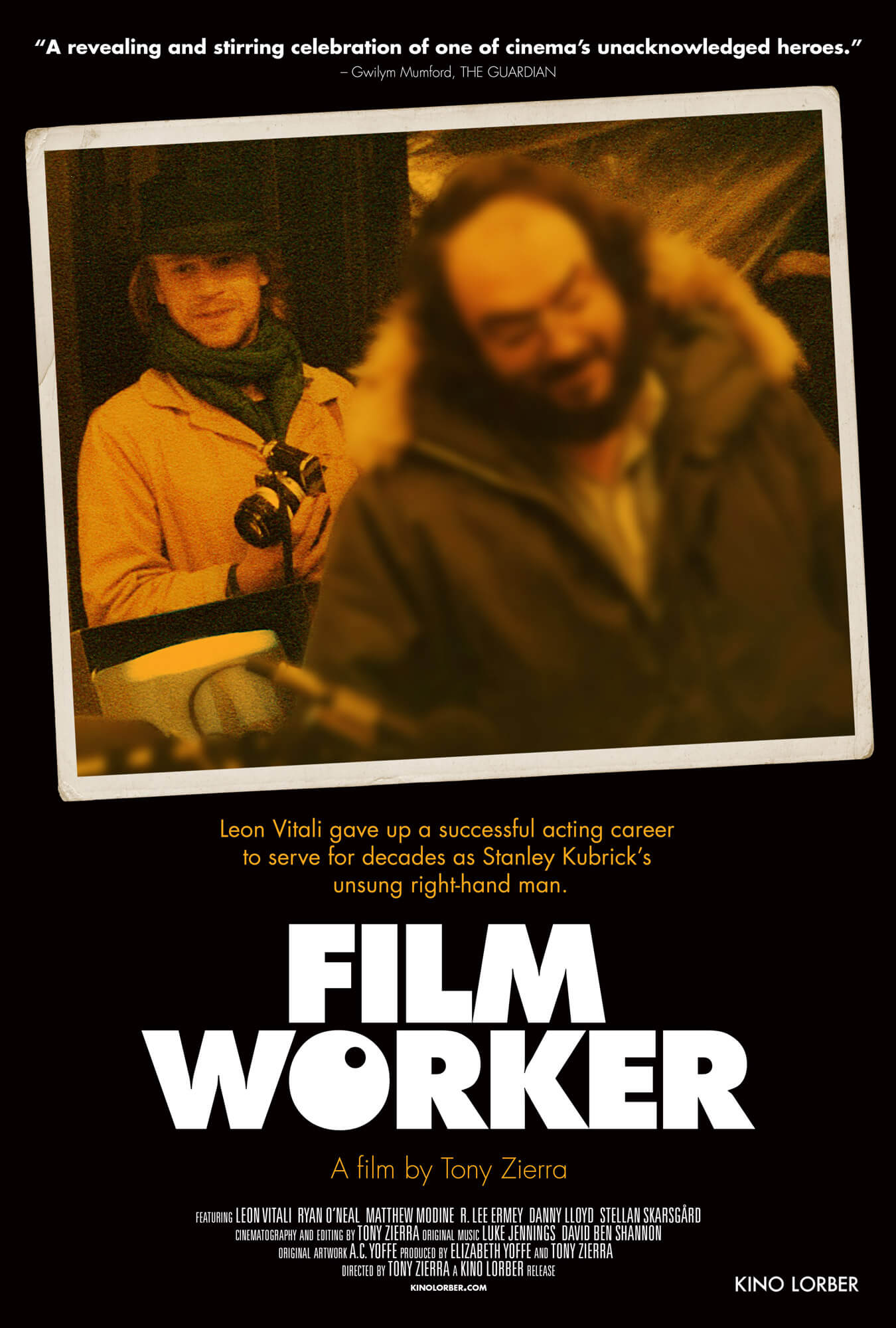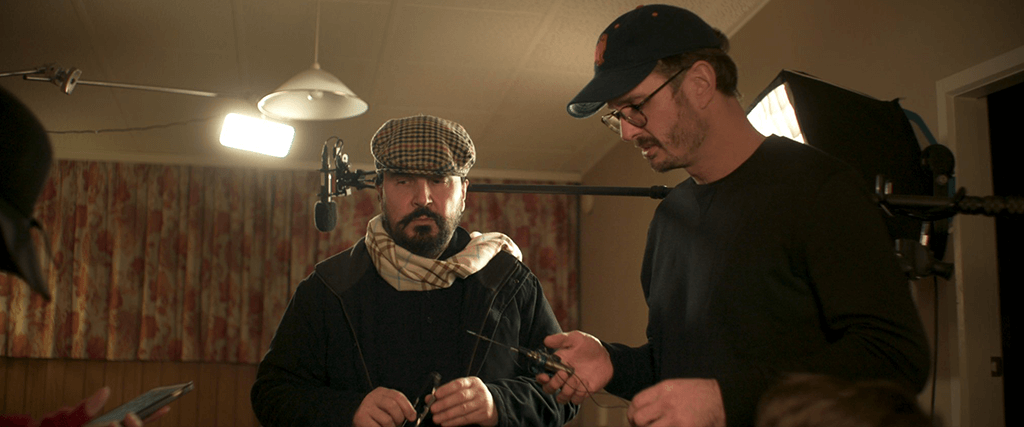
Mister Organ
By Brian Eggert |
New Zealand journalist and documentarian David Farrier first learned of Michael Organ in 2013, when Organ worked a legal but no less shady scheme in the parking lot of Bashford Antiques, in an affluent Auckland suburb. If anyone parked in the lot after the store closed, Organ would block or place a clamp on their car and charge an excessive amount to release it. One parker was charged $760 to free their vehicle since, at the time, the law put no limit on how much a property owner could fine a parked car on private property. Farrier looked closer at Organ and discovered an intriguing subject—a human oddity and mass of contradictions, lies, charm, and predatory behavior. Early on, Farrier calls Organ a “clamper,” not just because of his car routine but because this strange man refuses to let anything go. But near the end of the film, the filmmaker’s descriptions become more pronounced after losing thousands of dollars to Organ’s schemes and spending countless hours talking with him—and even more time listening to him talk in numbing one-way conversations. Before Mister Organ is over, Farrier describes Organ as a “black hole,” and later, with tears in his eyes, as “a fuckwit who bores people to death until they jump off a building.”
Farrier returns with another maddening journey down a rabbit hole similar to his 2016 feature, Tickled, which he co-directed with Dylan Reeve, about competitive endurance tickling and its chillingly secretive underworld. Michael Organ has a similar quality to him, in that he zealously attempts to conceal answers about his identity, and he’s smart enough to be litigious about it—in one case, winning against the filmmaker. But he uses his obvious intelligence to make his lies more convincing. In the subsequent court cases linked to the car clamping, Organ lists himself as an attorney (which he is not), and elsewhere claims he is nobility (also untrue), citing his name as Prince Michael Organe-Schirinski or Count Michael Andrassy-Organe. Sometimes, he spells his name “Micheal” and his last name “Organe” instead of “Michael Organ.” What is known is that he once ran a sex shop that failed, and when the property owner forced Organ out, he responded by stealing the property owner’s yacht. The crime landed him in prison for three years.
Farrier’s documentary has an impromptu style, with his curious yet befuddled presence onscreen, guiding spectators through the increasingly strange and maddening encounters, his cameraman a few feet away. He’s not as self-important or cocksure as Louis Theroux (My Scientology Movie, 2015) or Michael Moore (Roger & Me, 1989), which lends the doc the quality of an accident—as in, What did I just stumble onto? What begins as an oddity soon compiles into the profile of a dangerous narcissist who arrives in people’s lives, renders them unable to escape his presence, drains them of their willpower, and leaves them empty and shaken. Farrier talks to dozens of Organ’s past roommates and acquaintances whose collective assessments are summed up by one former friend: “Every single day with him was a living hell.” The woman who ran the now-closed antique shop follows him around, visibly hesitant if not downright afraid to speak against him, confident that he’s a “genius.” Others refuse to go on the record with Farrier, fearing that Organ might find out and reinsert himself back into their lives.
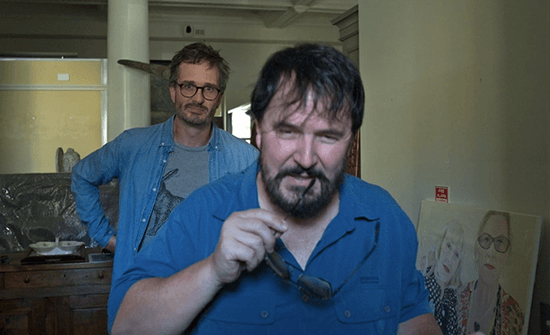 Farrier is baffled by the guy and cannot make logical sense of him. How could he? Organ’s textbook narcissism pairs a fragile ego with elaborate falsehoods and enough intelligence to cover his tracks (most of the time). When Farrier convinces Organ to record an interview, the subject is charismatic yet capable of spitting vitriol in the filmmaker’s direction. “You probably would’ve been an interesting person to know if you weren’t such a cunt,” Organ tells him. That statement suggests some finality, but Organ doesn’t leave Farrier alone. Like many documentaries, Mister Organ is about its own making, so as Farrier continues investigating, Organ invades his life. In one disturbing encounter, Organ claims over the phone to have a key to Farrier’s home, supposedly given to him by one of Farrier’s associates. Organ hands over the key when they next meet in person, seemingly out of goodwill. Later, Farrier tries the key on his front door, and it works. But if Organ somehow had one copy, why wouldn’t he have more? And to what end, beyond his ability to intimidate the filmmaker?
Farrier is baffled by the guy and cannot make logical sense of him. How could he? Organ’s textbook narcissism pairs a fragile ego with elaborate falsehoods and enough intelligence to cover his tracks (most of the time). When Farrier convinces Organ to record an interview, the subject is charismatic yet capable of spitting vitriol in the filmmaker’s direction. “You probably would’ve been an interesting person to know if you weren’t such a cunt,” Organ tells him. That statement suggests some finality, but Organ doesn’t leave Farrier alone. Like many documentaries, Mister Organ is about its own making, so as Farrier continues investigating, Organ invades his life. In one disturbing encounter, Organ claims over the phone to have a key to Farrier’s home, supposedly given to him by one of Farrier’s associates. Organ hands over the key when they next meet in person, seemingly out of goodwill. Later, Farrier tries the key on his front door, and it works. But if Organ somehow had one copy, why wouldn’t he have more? And to what end, beyond his ability to intimidate the filmmaker?
Eventually, Farrier admits that he regrets getting involved with Organ and wishes he never pitched what was initially a story about a quirky local character. Months later, it has consumed his life. When he drives out to an “abandoned psychiatric hospital in the middle of nowhere” to check out Organ’s former stomping grounds, which now serve as cheap residences, a former acquaintance outlines Organ’s agenda to the letter. Maybe if Farrier had come here earlier, he could have avoided the whole situation. But in his encounters with Organ, Farrier seems almost naive to his subject’s narcissistic game, unaware that Organ will never come clean or answer honestly. He offers kernels of truth, perhaps, but nothing definitive. I kept wondering why Farrier was incapable of just walking away. Was it because he had some contractual obligation to complete the documentary? Or maybe he couldn’t see what was coming? Farrier looks exhausted halfway through. “You pay a soul tax every minute you spend with Michael Organ,” he says. But Organ just keeps at him.
Afterward, questions remain: Is Mister Organ giving Organ what he wants, more attention? Or is it exposing him? Farrier has since hidden his address and moves between Los Angeles and Auckland, preserving his privacy in part to shut Organ out of his life. But the man keeps involving the filmmaker in random lawsuits and unwarranted cases, even after this film’s release. Although Organ sometimes registers as a Machiavellian type, he behaves too unpredictably for such credit. He’s not an evil genius, though he is a nagging manipulator and controller of people. It’s more like he’s just making it up as he goes, depending on what his mood believes will get him the most attention. Sometimes, he insults Farrier; sometimes, he flirts with him—either way, he’s ingratiated. It would have been interesting if Farrier showed his footage to a psychiatrist to diagnose the behavior, but that would only lead to a technical label, whereas Organ proves more fascinating as a case study of aberrant human behavior. Moreover, Mister Organ is about the experience through the filmmaker’s perspective, seeing the situation unravel in confounding ways. Farrier doesn’t offer a tidy conclusion or many answers; however, his film is irresistible and gripping. It’s also a warning.
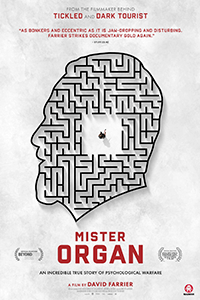
Thank You for Supporting Independent Film Criticism
If the work on DFR has added something meaningful to your love of movies, please consider supporting it.
Here are a few ways to show your support: make a one-time donation, join DFR’s Patreon for access to exclusive writing, or show your support in other ways.
Your contribution helps keep this site running independently. However you choose to support the site, please know that it’s appreciated.
Thank you for reading, and for making this work possible.
Brian Eggert | Critic, Founder
Deep Focus Review


